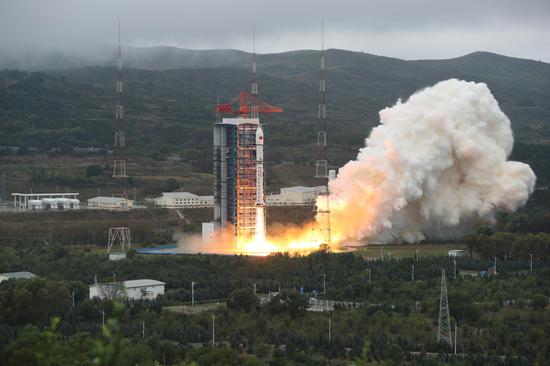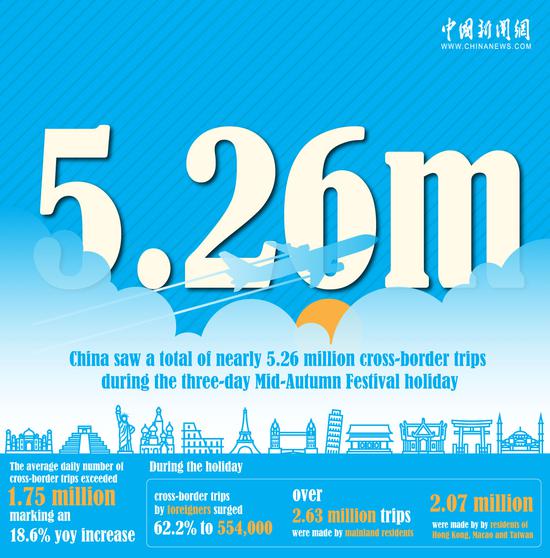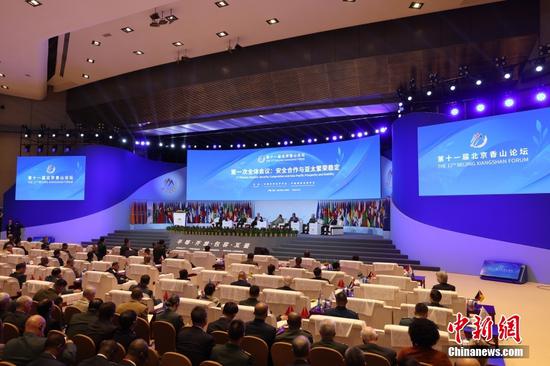
A child experiences writing with a Chinese calligraphy brush on a digital screen at the 14th China International Digital Publishing Expo in Hainan province on Saturday. (Photo provided to China Daily)
The digital publishing industry in China is experiencing rapid growth and high-quality productivity, as revealed in the 2023-2024 annual report on China's digital publishing industry.
The report was unveiled at the 14th China International Digital Publishing Expo, which kicked off in Haikou, Hainan province, on Saturday.
According to the report, China's digital publishing industry earned an estimated 1.6 trillion yuan ($229 billion) in revenue last year, up 19 percent from 2022.
Internet advertising, online gaming, online education and digital music continue to lead the industry in terms of revenue. Last year, internet advertising saw 719 billion yuan in revenue, online gaming raked in 303 billion yuan, online education earned 288 billion yuan and digital music netted 191 billion yuan.
The report highlighted the growth of some digital publishing sectors, with internet periodicals, e-books and digital newspapers generating a combined revenue of 11.3 billion yuan in 2023, an 8.56 percent year-on-year increase.
Digital publishing offers a wealth of possibilities for vibrant storytelling and engaging readers in new ways, according to Wang Qing, chairman of the Central China Publishing and Media Investment Holding Group.
Wang noted that the process of digitization is shaping new content scenarios within the publishing industry. Compared to traditional publishers, digital platforms provide unique advantages in terms of content activation, user reach and fostering a return to reading.
"Publishing companies must capture data through their services and let this data empower them to provide even better services," he added.
Virginie Clayssen, president of the digital commission at the French Publishers Association, agreed that publishers should embrace digital transformation to become leading providers of high-quality digital books. She said that technology plays a vital role in "resurrecting" out-of-print books and making forgotten literary heritage accessible to a wider audience.
Zhou Qing, chairman of Sichuan Xinhua Publishing Group, said that in the era of artificial intelligence, the industry is evolving into a service industry centered around data, algorithms and computing power. With its vast accumulation of content resources over its long development, the traditional publishing industry is well-positioned to transform from content resources to digital products through the establishment of large models.
"In the future, AI will serve as a tool for empowering the publishing industry, and the industry will also become a supplier of language data for artificial intelligence," he said. "The two will form an economic community where technology and content are integrated, and input and output are mutually driving."
The publication of online literature in China is flourishing, the report said. In December, the number of online literature readers reached a record 537 million, and the number of online literary works exceeded 36 million, with over 24 million authors contributing content.
The emerging online animation sector also showed strong development momentum last year, achieving revenue of 36 billion yuan.
A focus on producing high-quality content, using premium resources and engaging in deep development efforts has led to the creation of top-notch animated works and the establishment of well-known brand systems.
"Through robust market research and clear user profiling, the industry has enhanced the targeting and applicability of its content, paving the way for the industrialization and high-quality development of online animation," the report said.


















































 京公网安备 11010202009201号
京公网安备 11010202009201号
